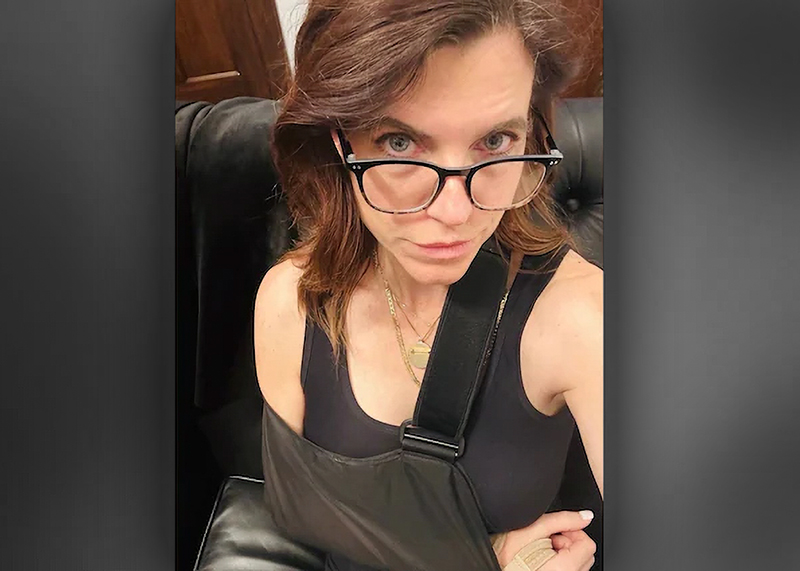Federal judge says Catholic adoption agency has interest in turning away gay couples
Judge issues injunction to stop Michigan from terminating contract with Catholic adoption agency

A federal judge in Michigan has ruled that a Catholic adoption agency can refuse to place children with same-sex couples due to its religious beliefs, even if it continues to receive taxpayer money.
Last week, U.S. District Judge Robert Jonker of the Western District of Michigan blocked the state of Michigan from enforcing the terms of a new settlement, reached in March, that came about as a result of a lawsuit brought by two lesbian couples. The four women had alleged that Michigan’s 2015 conscience clause exemption law, which allows state-funded child placement agencies to refuse to place children with same-sex couples an other prospective parents on the basis of religious beliefs, was discriminatory and unconstitutional.
As part of the settlement, Michigan agreed to require all child welfare agencies that contract with the state agree not to discriminate against prospective adoptive or foster parents on the basis of certain characteristics, including whether the parents are in a same-sex relationship. If an agency is found to be discriminating, their contract with the state will be terminated.
But Becket Law, a conservative legal firm, filed a lawsuit against the state of Michigan on behalf of an adoptive mother, a former foster child, and St. Vincent Catholic Charities, a child placement agency that had previously refused to work with one of the lesbian couples in the original lawsuit.
In its complaint, Becket argued that the state’s new settlement violates St. Vincent’s — and other religiously-affiliated placement agencies’ — First Amendment right to free exercise of religion and free speech, Fourteenth Amendment right to equal protection, and rights guaranteed under the federal Religious Freedom Restoration Act. Such agencies, Becket argues, have an interest in not placing children with same-sex couples or other parents who do not conform to their religious or moral values.
Furthermore, Becket argued, without state contracts, St. Vincent would be forced to close its doors to avoid violating its religious beliefs, while same-sex couples and unmarried single parents have other agencies who are willing to work with them if they wish to adopt or foster children.
Jonker agreed with St. Vincent’s contentions, issuing an injunction just days before St. Vincent’s contract to provide adoption services was set to expire. That injunction will remain in place while the lawsuit is argued on the merits.
In his opinion, Jonker wrote that the state’s settlement and comments made by Democratic Attorney General Dana Nessel prior to taking office show that “the state’s new position targets St. Vincent’s religious beliefs.”
Jonker added that the issue is not whether same-sex couples can be good parents, but “whether St. Vincent may continue to do this work and still profess and promote the traditional Catholic belief that marriage as ordained by God is for one man and one woman.”
Jay Kaplan, a staff attorney for the ACLU of Michigan, called Jonker’s decision disappointing, and said the judge had appeared to ignore the counter-arguments made by the ACLU and the state of Michigan in amicus briefs. For example, Jonker failed to discern between comments made by Nessel in her official capacity and those made in her capacity as a private citizen when commenting on Michigan’s policy allowing religiously-affiliated agencies to discriminate, reports The Detroit News.
Kaplan further argued that adoption agencies become state actors when they accept taxpayer money to operate in the adoption sphere, and allowing agencies to cite religious beliefs as justification violates the separation of church and state.
“The ones who lose as a result of this are the children, the children who need these loving, stable homes,” Kaplan told the News.
But Nick Reaves, a lawyer for St. Vincent’s, hailed Jonker’s ruling as necessary to protect the agency, and others with similar views, from being targeted by the state because of their beliefs.
The ruling shows “discriminatory actions taken by the state in this case really have no role in the foster care and adoption context,” Reaves said. “And when the state takes these actions, it actually makes it harder to find a home for kids in need.”
Read more:
Out & Equal helps companies make their workplaces more LGBTQ-affirming
Transgender sheriff’s deputy sues Georgia county over health insurance exclusion
Support Metro Weekly’s Journalism
These are challenging times for news organizations. And yet it’s crucial we stay active and provide vital resources and information to both our local readers and the world. So won’t you please take a moment and consider supporting Metro Weekly with a membership? For as little as $5 a month, you can help ensure Metro Weekly magazine and MetroWeekly.com remain free, viable resources as we provide the best, most diverse, culturally-resonant LGBTQ coverage in both the D.C. region and around the world. Memberships come with exclusive perks and discounts, your own personal digital delivery of each week’s magazine (and an archive), access to our Member's Lounge when it launches this fall, and exclusive members-only items like Metro Weekly Membership Mugs and Tote Bags! Check out all our membership levels here and please join us today!























You must be logged in to post a comment.